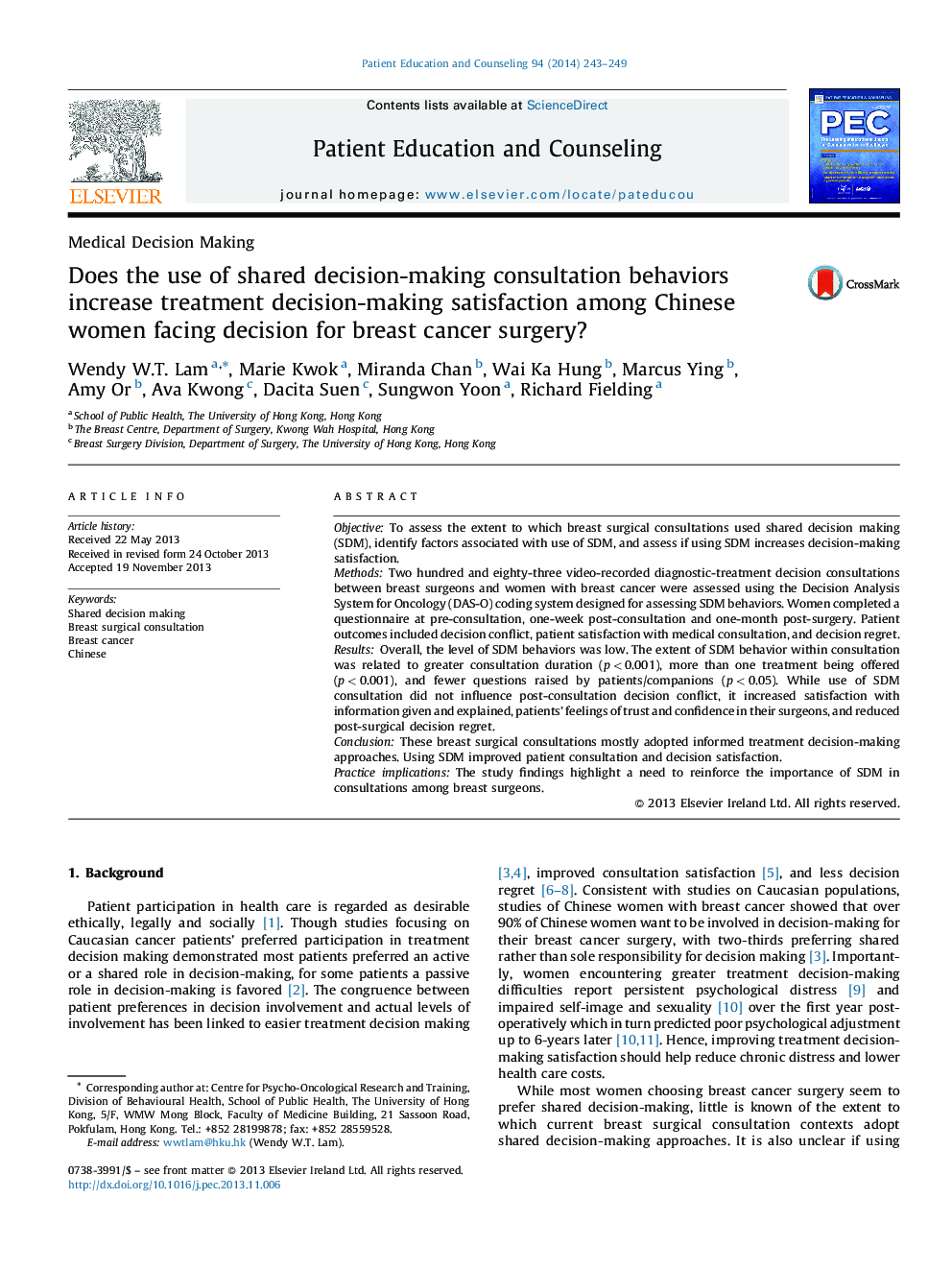| Article ID | Journal | Published Year | Pages | File Type |
|---|---|---|---|---|
| 3813879 | Patient Education and Counseling | 2014 | 7 Pages |
ObjectiveTo assess the extent to which breast surgical consultations used shared decision making (SDM), identify factors associated with use of SDM, and assess if using SDM increases decision-making satisfaction.MethodsTwo hundred and eighty-three video-recorded diagnostic-treatment decision consultations between breast surgeons and women with breast cancer were assessed using the Decision Analysis System for Oncology (DAS-O) coding system designed for assessing SDM behaviors. Women completed a questionnaire at pre-consultation, one-week post-consultation and one-month post-surgery. Patient outcomes included decision conflict, patient satisfaction with medical consultation, and decision regret.ResultsOverall, the level of SDM behaviors was low. The extent of SDM behavior within consultation was related to greater consultation duration (p < 0.001), more than one treatment being offered (p < 0.001), and fewer questions raised by patients/companions (p < 0.05). While use of SDM consultation did not influence post-consultation decision conflict, it increased satisfaction with information given and explained, patients’ feelings of trust and confidence in their surgeons, and reduced post-surgical decision regret.ConclusionThese breast surgical consultations mostly adopted informed treatment decision-making approaches. Using SDM improved patient consultation and decision satisfaction.Practice implicationsThe study findings highlight a need to reinforce the importance of SDM in consultations among breast surgeons.
